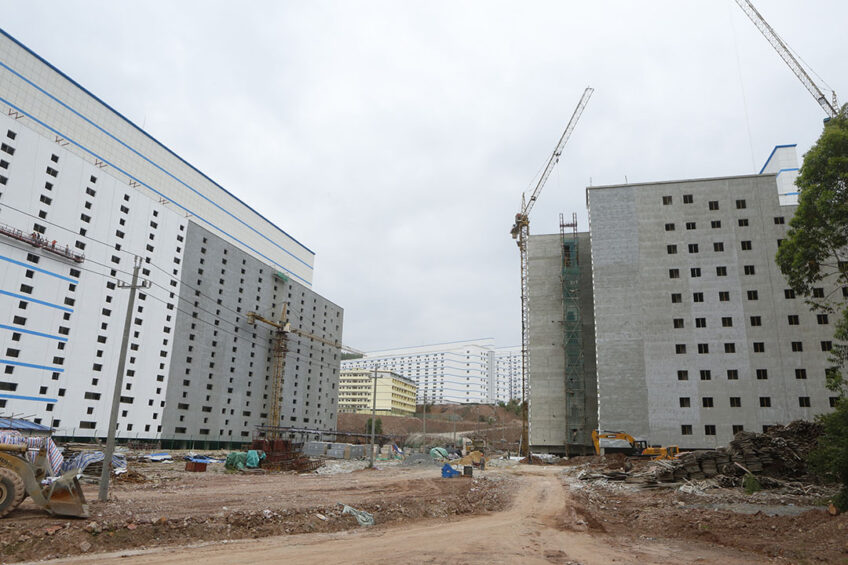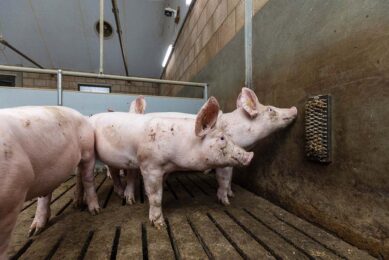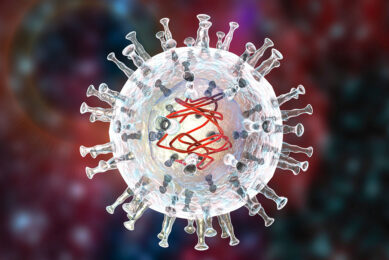High rise piggeries and tech at Alltech ONE conference

As pork production around the world is ramped up to cater for increased demand, pig housing and technology is also being developed at a fast pace. 2 Speakers at the recent Alltech ONE ideas virtual conference, held June 22-24, focused on their work in these specialist areas. In addition, keynote speakers zoomed in on more general actual themes.
High rise piggeries in China
Yu Ping, founder of Yu’s Design which designs pig farms, discussed China and its growing demand for high rise piggeries. Pork meat is a favoured protein among China’s 1.4 billion population and the country is home to 400 million pigs. Yu said, “My business designs high rise pig farms which includes the pig farm layout, pig house structures, ventilation models, plus environment controls. This design is suitable for all geographic locations and climatic conditions and is now on version 5.”
 “We have around 62 buildings in production and under construction right now. There are two models, one of which is a steel structures. When the steel price is low, we use steel structures, and when the price of steel is high we use a concrete model. To feed the animals we place a silo outside the biosecurity wall. We‘ve got the bucket elevator inside of the building as well as an internal feed system.”
“We have around 62 buildings in production and under construction right now. There are two models, one of which is a steel structures. When the steel price is low, we use steel structures, and when the price of steel is high we use a concrete model. To feed the animals we place a silo outside the biosecurity wall. We‘ve got the bucket elevator inside of the building as well as an internal feed system.”He said, “The ventilation system is mechanically controlled plus natural. It’s switched automatically depending on the temperature inside and outside.” The smell generated from pig farms always causes controversy and Yu gave an outline of the odour treatment facility in his design.
He said: “We use water and acid to treat the odours. In the multi-storey buildings it’s easy to separate the solid and the liquid with the right equipment. The solids are easy to treat to become organic fertiliser but the liquid is a headache for the whole industry.”
Smart technology in swine farms
 Jon Hoek, president of Summit Smart Farms, USA, delved into the big wide world of farm technology looking to what the future holds. He said: “We have tremendous technology and controllers; we have data coming in more than what we know what to do with. When I talk to producers they say, I just love my controller, but it just locks me up. I don’t know what to do with it. So it creates a poverty of attention, and attention equals margin.”
Jon Hoek, president of Summit Smart Farms, USA, delved into the big wide world of farm technology looking to what the future holds. He said: “We have tremendous technology and controllers; we have data coming in more than what we know what to do with. When I talk to producers they say, I just love my controller, but it just locks me up. I don’t know what to do with it. So it creates a poverty of attention, and attention equals margin.”
Hoek added: “What we‘re really talking about today in digital transformation is kind of reinventing how we raise pigs.”
Hoek said that in 2020 during Covid-19, Flexware and Summit came together to bring digital transformation to protein production. In 2021 Acumence SM was born and soft-launched in Iowa, Illinois, and Indiana.
Hoek said, “And so our purpose was really to demonstrate something that is in the field today. We have real-time mortality reporting. We‘ve narrowed the gap from 7 to 10 days down to real time. Barn visibility is something where it creates the visibility to the barn, creates the environmental visibility. But it doesn’t necessarily give you actionable items.”
“Today we see a lot of sensor companies being born. We see a lot of barn visibility companies being born. And the race to analytics is really where everybody’s headed. And taking that data from the inside of barns and converting it into contextualised data will be the important thing for adoption of some of the smart technology for big production.”
Farmers can be the saviours of Mother Earth
Mother Earth is currently under a great deal of pressure feeling the pain of billions of inhabitants going about their daily lives sometimes with complete disregard to the damage they are causing.
 During his keynote speech, David McWilliams, economist and professor at Trinity College Dublin, Ireland, discussed the world and the Covid-19 pandemic.
During his keynote speech, David McWilliams, economist and professor at Trinity College Dublin, Ireland, discussed the world and the Covid-19 pandemic.He said: “We have inherited a beautiful planet from our ancestors, people we can no longer hear, and we are about to pass it on to our descendants, people we cannot yet see. Our job is to leave this amazing planet in better shape than when we got here.”
The pressures, said Prof McWilliams, include global warming, rising sea levels, polluted rivers, parched lands, blackened skies, and global pandemics. He said, “We all have a fair idea where the story ends. But there is an alternative. It’s legacy thinking. And the farmer, the traditional steward of our planet, its animals, its land, forests, and rivers, can be its saviour.”
Prof McWilliams continued, “So, with just one planet to share, we‘re all in this together. Conservationists and consumers, farmers and activists, industry and government, man and Mother Nature, and the goal is the 3 H’s, healthy people, healthy society, and a healthy planet.”
His take-home message was that agriculture is the reason our civilisations developed, and our food systems and diets still remain diverse and amazingly responsive. “While the challenge of feeding the growing planet will fall on fewer shoulders than was the case in the past, with innovation and the will to be that good ancestor, we will continue to produce more with less, and this time, for a healthier people, healthier society, and a healthier planet,” he said.
A different diet will not save the planet
New eating habits and an ever-increasing focus on agricultural effects on the environment focused heavily during the keynote speech by Dr Mark Lyons, president and CEO of Alltech.
 He said: “They are saying that we need to change our diet in order to save our planet. And while their ideas may not be based on fact, they are certainly not alone. We can see in many media publications a lot of negativity towards agriculture and specifically animal agriculture and particularly also the area of beef production.”
He said: “They are saying that we need to change our diet in order to save our planet. And while their ideas may not be based on fact, they are certainly not alone. We can see in many media publications a lot of negativity towards agriculture and specifically animal agriculture and particularly also the area of beef production.”
Dr Lyons highlighted how some of the best restaurants in the world are removing beef from their menus and how the protein is also being removed from many recipes, all because some people think producing beef harms the climate.
Europe has introduced the Green Deal and in the United States the Biden administration is drawing up its own climate programme. One surprise though is that Argentina, a major beef producer, has launched a Green Mondays programme encouraging people to replace meat with plant-based proteins.
Dr Lyons said farmers need to stand up for their industry when it came to the benefits of farming on the environment. He quoted one surprising figure that if the United States eliminated all its dairy cows, greenhouse gas emissions there would only fall by 0.7%, and at the same time remove 39 essential nutrients from human diets.
His apt conclusions were that: “We really have to realise that we will not save the planet with a different plate. It’s our utilisation of fossil fuels that is driving climate change. And so if all of humanity turned into vegans, we would not actually save our climate challenge.”
Read more about the Alltech ONE Conference.
 Beheer
Beheer








 WP Admin
WP Admin  Bewerk bericht
Bewerk bericht